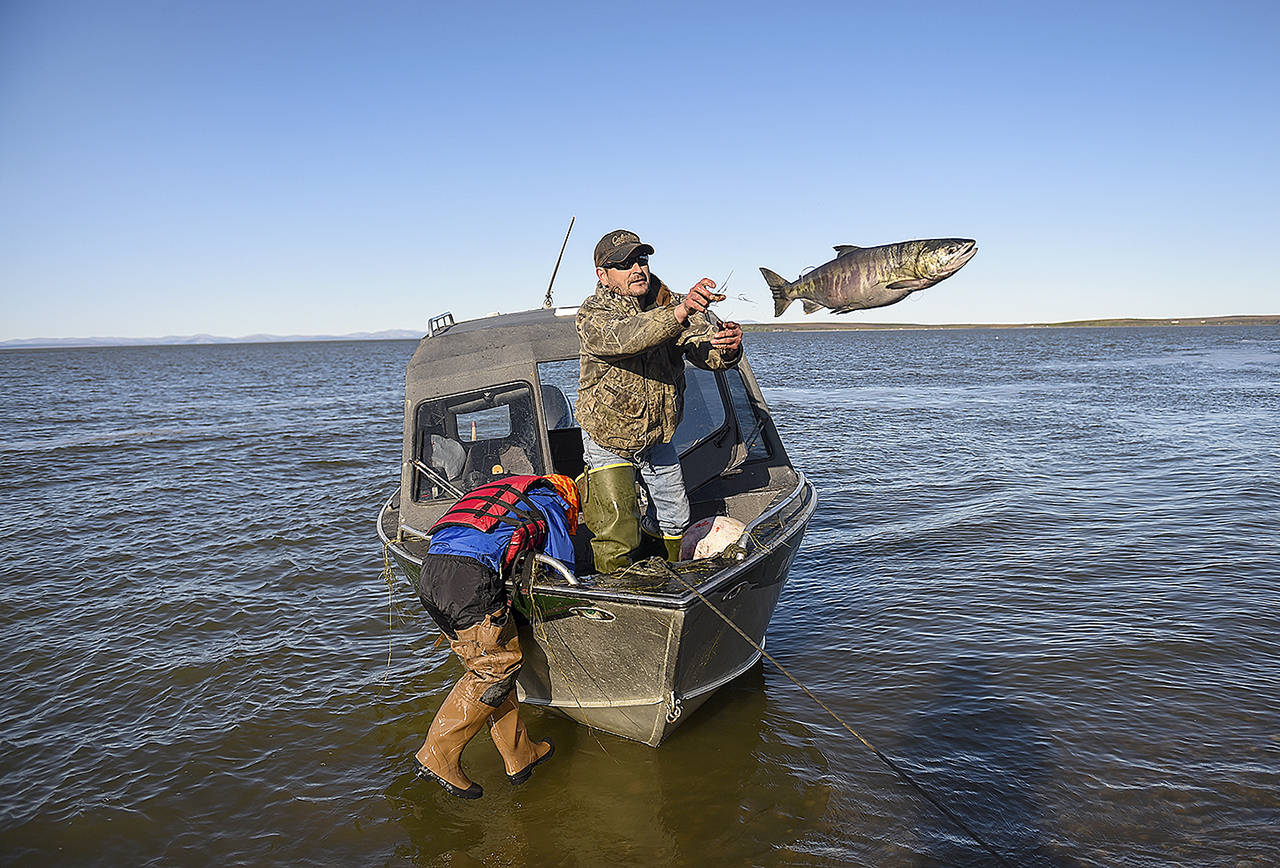By The Herald Editorial Board
Nuance and moderation have not seen the outside of President Trump’s tool bag during his first few weeks in the White House, which is why in seeking a reconsideration of the federal government’s 2015 Waters of the United States rule, part of the Clean Water Act, he recently called for the “elimination of this very destructive and horrible rule.”
The “destructive and horrible rule” actually guarantees protections for bodies of water from small streams and wetlands on up to larger bodies of water such as Puget Sound, the Salish Sea and the Great Lakes that help provide clean, drinkable water, and resources that protect the health of fish and wildlife.
What would be destructive and horrible is the White House proposal to cut the Environmental Protection Agency’s budget by nearly a quarter and reduce its staffing by 20 percent, particularly in programs related to water and air quality and reduction of greenhouse gas emissions.
A new federal review of the waters rule, which had already undergone years of review and public comment, could take more than a year, and, as noted in a Washington Post story, is likely to trigger more rulemaking for the federal Environmental Protection Agency and other agencies as well as litigation over those federal regulations. And budget and staffing reductions for the EPA and other federal agencies will also bring a lengthy fight.
In the meantime, there’s water to protect, and it’s in the best interests of Washington state residents if the state and its Department of Ecology take the lead on clean water rules now.
Last year, after years of drafting and fine-tuning rules and setting standards for clean water — the state Department of Ecology adopted its own Clean Water Rule that set allowable limits for pollutants and set a standard based on the amount of fish that could be safely be consumed.
Previously, that fish-consumption rate was minuscule, just 6.5 grams a day, or less than 2 ounces a week. The new standard is a much-more-realistic 175 grams daily, about a 6-ounce serving. Using that rate of fish consumption, pollutants can’t present a risk of cancer of more than 1 in 1 million.
But following the state’s issuance of its rule, the EPA determined that while most of it met the federal agency’s requirements, it wanted more stringent standards set for three pollutants; PCBs, mercury and arsenic. The EPA standard for PCBs, for example, is 25 times more restrictive than the state’s, yet the state’s limits still guaranteed that 1 in 1 million risk of cancer.
That more stringent limit set by the EPA, however, would require more complicated and costly water treatment, not just for industry but for cities and counties at their wastewater treatment plants. In some cases, the technology to treat wastewater and industry effluent to those standards will be too costly and may not even exist, say spokespeople for the Association for Washington Cities, the Association of Washington Business and others.
The AWC projected that complying with the EPA standards for PCBs, arsenic and mercury could cost those cities and counties surrounding the Puget Sound and southern Salish Sea as much as $7.4 billion to upgrade wastewater treatment plants, The Lens reported in November.
In most cases, factories and wastewater treatment aren’t the source of the pollutants, but they’ve become responsible for removing them because they are at the end of the pipe. The EPA’s standards are “asking for big investments from the wrong people,” Rob Duff, a senior policy adviser with Gov. Jay Inslee’s office, told The Seattle Times in November, when the EPA rule was announced.
What is still needed are state standards that prevent toxic chemicals from entering waters in the first place, a plan Gov. Inslee proposed in 2014 but was not adopted by the Legislature.
An industry group that includes the AWB, the Northwest Pulp and Paper Association, the Washington State Farm Bureau, the Utility Water Act Group and others recently petitioned the EPA to reconsider its determination and use the standards adopted by the state Department of Ecology.
The standards that had been reviewed and adopted by the state last year remain some of the most protective in the nation. The EPA will have plenty of battles to fight in other states and in Washington, D.C. This Washington can take care of its water.
Talk to us
> Give us your news tips.
> Send us a letter to the editor.
> More Herald contact information.

























